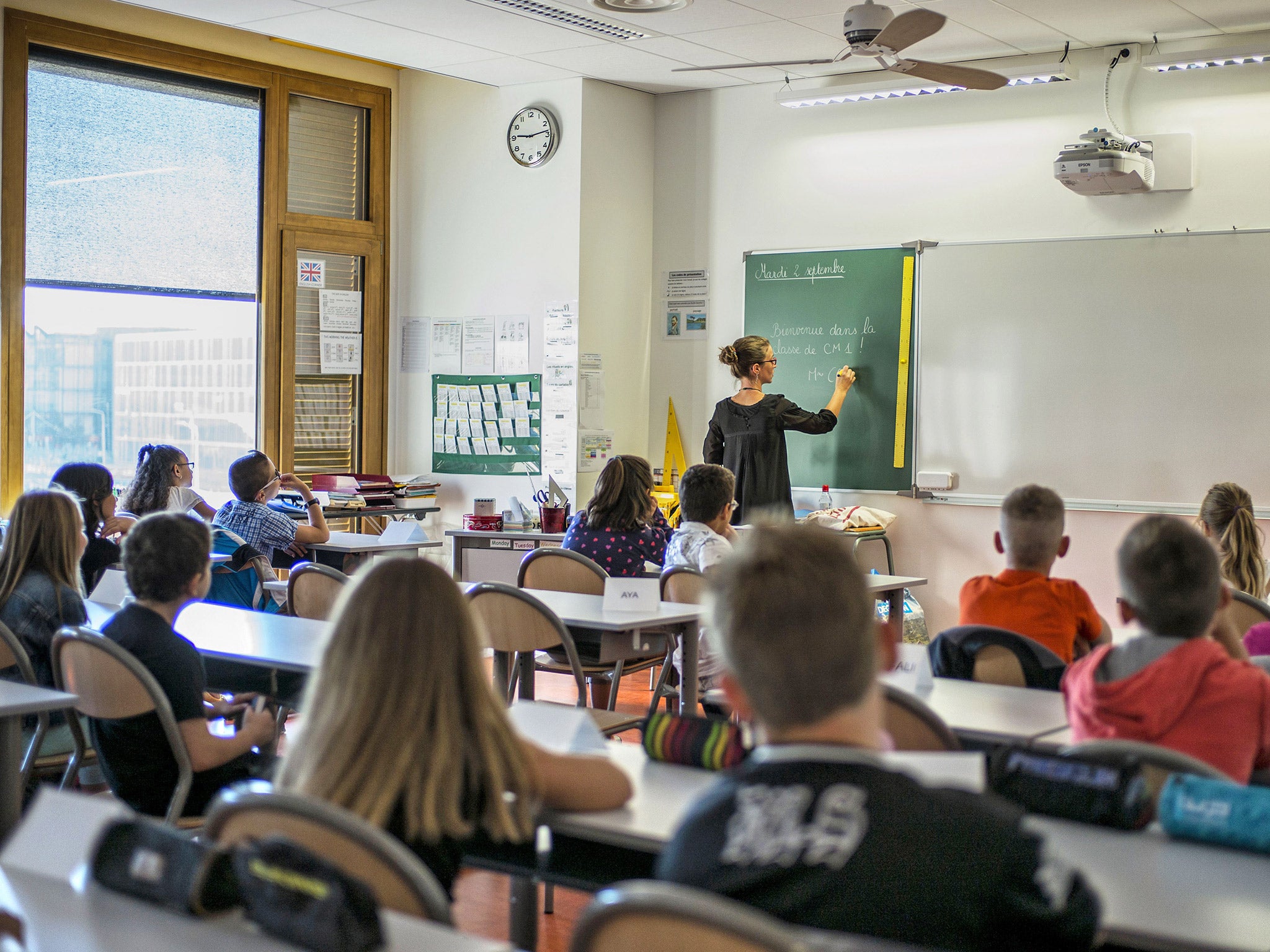French Education Minister sparks diplomatic situation with Germany by proposing to abolish 'two-language' classes for 11-year-olds
German Chancellor Angela Merkel believes the political friendship between the two countries will never be complete unless more youngsters from both nations speak both languages - and will raise the subject with French President François Hollande

As the history of Franco-German quarrels go, this one seems mild – and rather confusing. It goes, however, to the heart of the Franco-German problem: a half-century after the two countries signed a treaty promising to bring their peoples closer together, their citizens live mostly back-to-back lives.
Their governments may be partners in European politics but ask any young French person to name a popular German rock band – or vice versa – and the answer is likely to be a blank.
Now the French Education Minister has provoked a cross-Rhine storm by proposing to abolish special classes which allow some clever French 11-year-olds to learn German alongside English from the first year of secondary school. Instead, says the minister, Najat Vallaud-Belkacem, all children in France will be taught a second modern language of their choice from the age of 12.
Ms Vallaud-Belkacem insists that her proposals will increase the number of German speakers in France. Petitions circulating on the internet and angry comments by German ministers suggest otherwise. They say that the abolition of the “two-language” classes will be the death knell of German speaking in France. Given a choice of a second modern language at 12, many French children will opt for Spanish, Italian or Russian.
The German ambassador in Paris has written a letter of complaint and concern to the Education Minister. A junior German foreign minister, Maria Böhmer, spoke of “painful news for all those who work to cement Franco-German relations”.
Chancellor Angela Merkel is reported to be preparing to raise the subject in a telephone call to President François Hollande. The political friendship between the two countries will never be complete, Ms Merkel said recently, unless more young French and more young Germans speak both languages. She should know. When she speaks to Mr Hollande, she speaks English or uses an interpreter.
Ms Vallaud-Belkacem’s proposals are part of a reform of the curriculum of French colleges, or middle schools, which educate children between the ages of 11 and 15. Amongst other things, she wants to abolish the bi-langue or “two-language” classes for 11-year-olds which were created 10 years ago.
By offering joint intensive courses, the classes revived German teaching in France by exploiting the obsession of middle-class French parents with their children’s skills in English. Similar classes were created in Germany. The classes are available to about 15 per cent of French 11-year-olds – the cleverest and most enthusiastic pupils.
Ms Vallaud-Belkacem says that her plan to make teaching of two modern languages compulsory from the age of 12 will be more effective and less elitist. “All college pupils, not just the most privileged, will be given the fundamental skills they need to succeed in life,” she said.
Statistics suggest otherwise, however: more than 40 per cent of French secondary-school children choose Spanish as their “third” language (after French and English).
Subscribe to Independent Premium to bookmark this article
Want to bookmark your favourite articles and stories to read or reference later? Start your Independent Premium subscription today.

Join our commenting forum
Join thought-provoking conversations, follow other Independent readers and see their replies